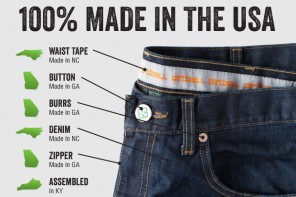H&M and Zara are against deforestation. The world’s largest fashion retailers – Zara represented by it’s holding company, Inditex – have pledged to develop new sourcing strategies to eliminate the use of endangered-forest fibers in all of their rayon and viscose clothing. The decision was made in partnership with Canopy, a forestry nonprofit whose “Fashion Loved by Forest” campaign has already been embraced by the likes of Eileen Fisher, Lululemon, Patagonia, Prana, and Quiksilver.
Rayon, viscose, modal, and other cellulosic fibers are increasingly made from the world’s most endangered forests, according to Canopy. From the lush rainforests of Indonesia to the great northern boreal forests, 70 to 100 million trees are logged annually to produce pulp for fabric for dresses, skirts, T-shirts, tank tops, yoga pants, and suit-jacket linings.
70 to 100 million trees are logged annually to produce pulp for rayon, viscose, modal, and other cellulosic fibers.
With its ever-growing expansion—demand for dissolving pulp is projected to increase by 122 percent in the next 40 years—viscose industry poses an increasing risk to threatened forest ecosystems around the world, says Nicole Rycroft, Canopy’s executive director. “These clothing sector leaders are showing that being stylish doesn’t have to cost the earth,” Rycroft says. “Canopy is excited to see two of the largest brands, both major trendsetters, stepping up to ensure fabrics are no longer sourced from the world’s endangered forests.”
H&M says it’s working with Canopy to put a plan in place by June 2014 to avoid sourcing fabrics from endangered forests and promote the use of fabrics from Forest Stewardship Council-certified plantations or forests. “We will focus on building traceable and sustainable production of these fabrics in our own supply chain, as well as shifting the whole global man-made fiber supply chain, in doing so we hope to inspire others,” it says in a press release.
By 2017, H&M says it will ensure, to the best of its knowledge, that it sources fabrics outside of ancient and endangered forests.
“H&M wants to play a strong role in ensuring a future for the planet’s ancient and endangered forests. We are fully committed to exploring our supply chain and doing our utmost to avoid these fabrics within the next three years”, says Henrik Lampa, environmental sustainability manager at H&M. “Working with Canopy, we are excited to take the additional step of encouraging leaders throughout the supply chain to support conservation in endangered forests and use alternative inputs, for example recycled clothing, so our actions create lasting change.”
The Swedish retailer says it will also “use [its] share influence” to support long-term conservation solutions for ancient and endangered forests worldwide, with a focus on the coastal temperate rainforests of North America, the boreal forests of Canada and Russia, and the rainforests of Indonesia, Africa, and South America.
via Ecouterre











